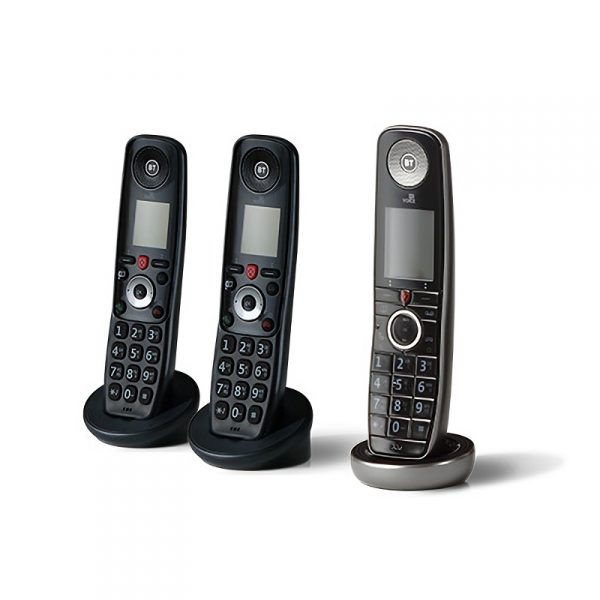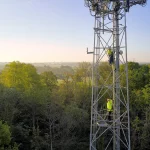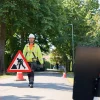Silver Voices Withdraws Support for BT’s Digital Voice Transition UPDATE

The non-profit Silver Voices organisation, which campaigns on behalf of senior UK citizens, has withdrawn its support for UK broadband ISP BT’s transition to Digital Voice (phone) services after the provider allegedly “reneged” on a deal with the group to help safeguard the interests of those over the age of 70.
Just to recap. The Digital Voice product was designed to replace BT’s old analogue phone service, which will cease to function once the Public Switched Telephone Network (PSTN / WLR) is completely withdrawn by December 2025. After that point, all future phone services – whether delivered via copper (ADSL, FTTC, G.fast) or Fibre-to-the-Premises (FTTP) based lines – will become IP (internet) based and require broadband to function.
However, BT’s original attempt to migrate existing customers over to Digital Voice ran into various problems and ended up being paused in May 2022 (here), with most of the complaints coming from senior citizens and vulnerable users.
Advertisement
The complaints tended to focus on the confusion and limitations of the service, such as the fact that, without a good battery backup, it won’t work during power outages. Similarly, some kit, such as older home alarms and remote medical monitoring / telecare services, may not function correctly. Some homes also need wired extensions and special handsets (not everybody has a router location that is suitable for connecting handsets).
After making various changes, the rollout was finally restarted earlier this year and has been going reasonably well, although it should be understood that the move to IP based phone services does have some unavoidable caveats and edge cases will still run into problems.
As part of that restart, Silver Voices withdrew its earlier opposition to the programme on the basis of a deal to safeguard the interests of older customers, at least until reliable new technology and products are widely available. A key part of that deal was that “no customer over 70 would be switched over during the next 12 months (unless they wanted to voluntarily opt-in)“.
However, Silver Voices recently learnt of BT’s trial in the East Midlands region, which the operator this week (here) said involved the “rollout of Digital Voice to a limited number of existing broadband customers who are over 70.”
Advertisement
The customers BT said they reached out to were between 70 and 74, already had broadband, the latest hub, didn’t use their landline for calls that often and didn’t have any additional needs. “Customers who could make the switch easily without being sent any additional equipment,” said BT (apparently 98% of customers between 70 and 74 chose to switch and only 2% chose to defer).
According to OTS News, senior BT Executives gave the Director of Silver Voices, Dennis Reed, assurances that nobody over 70 would have to switch if they were uncomfortable with the pace of the transition, or for other reasons.
But Silver Voices now says this was “untrue” and that BT has also declined to make clear in the future that the switch over is voluntary for the over 70s at this stage of the programme. BT has claimed that this change has the support of its in-house Digital Voice Advisory Group, which is said to be dominated by BT insiders, but co-chaired by Age UK.
Silver Voices Statement
“Silver Voices was assured that a landline-only option would be available next year, which would not require the customer to take out a wider broadband package from BT, and the one-year delay in switching the over 70s was based on the development of this, and other products, for vulnerable customers.
BT has been advised that Silver Voices is withdrawing its support for the whole Digital Voice programme because of this “breach of faith”. If it is true that Age UK has supported this change of policy, without consulting its supporters, then the charity is failing in its responsibilities towards older people.
The deadline of 2025 for the removal of all copper landlines is untenable as the measures to support vulnerable customers have still not been developed. There is no reason why the two systems should not work in parallel for at least five years, so that everyone continues to have access to a reliable landline, until proven new technology is in place. The target was agreed between the telecom giants and the Government, but there is no need for this ‘Big Bang’ approach.”
In fairness, this change has been known about for the best part of a decade, so ISPs and network operators have had plenty of time to adapt (BT are arguably the most prepared of the lot). The same could also be said for all those providers of alarm and telecare services, which have tended to shift the blame for their own lackadaisical pace of adaption and support.
Advertisement
Once again, it’s important to stress that this is not merely a BT specific challenge and impacts many providers, with some ISPs even opting to avoid the hassle entirely by only focusing on the sale of broadband-only products – forcing some customers with home phone products to switch away.
As usual with these things, most consumers only start to take notice when something reaches the point of directly impacting them, and by then it’s often at the 11th hour mark. Meanwhile, it’s important to remember that what may seem like a simple change to those with some familiarity, can still be very confusing for those finding out about it for the first time. We’ve asked BT for a comment and will update when that arrives.
UPDATE 4:38pm
We’ve had a statement from BT, although it largely just repeats what they’ve said before.
A BT spokesperson told ISPreview:
“Silver Voices has played a valued role in helping inform our expanded trials and regional rollout of Digital Voice alongside Age UK, Independent Age and other organisations representing older people, as part of our Digital Voice Advisory Group.
This has included helping us develop improved customer communications, introducing a region-by-region approach to the rollout and a host of new additional support and services.
The response we’ve received from customers as a result has been really positive, so with the backing of the Digital Voice Advisory Group, we recently made the decision to extend the rollout of Digital Voice to a limited number of existing broadband customers between the ages of 70 and 74 as part of a new trial.
These customers – like all others – can contact us if they have any questions or wish to defer their move to Digital Voice. Nearly all customers in the trial chose to make the switch to Digital Voice, with only 2% choosing to defer. If customers have any questions or concerns, we’re here to support them every step of the way.”
Mark is a professional technology writer, IT consultant and computer engineer from Dorset (England), he also founded ISPreview in 1999 and enjoys analysing the latest telecoms and broadband developments. Find me on X (Twitter), Mastodon, Facebook, BlueSky, Threads.net and Linkedin.
« ISPA Begins Hunt for UK Internet Hero in 2023 Industry Awards
ISP BrawBand Expands its FTTP Broadband Reach in Scotland »






















































What do people who sign up for FTTP from many providers do?
Plug their DECT phone into the VOIP adaptor or the ISP hub, and get on with their lives?
All the elderly relatives in my family happily chucked their cabled handsets years ago, so they’ve had a phone that doesn’t work in a power cuts for well over a decade.
Luckily we don’t have many power cuts so ditching wired phones hasn’t caused too many issues. However VoIP needs a few more ducks in a row to work: Power -> working phone line (crackles on analogue still works, VDSL/ADSL it stops taking the phone with it) -> working Router -> working Internet -> correct settings if a separate VoIP account.
If you are elderly then there is a lot more that can go wrong with VoIP that you need to understand and troubleshoot if you have an issue.
It is not clear how BT’s actions are in contravention of the assurances they are alleged to have given to Silver Voice – a lot depends on the exact wording of the communication to those 70-74 year old users.
Even if it was technically in breach of those assurances, it is quite possible that it was in keeping with the spirit of them – one of Silver Voice’s concerns appears to be that old people will be forced to buy internet access they don’t need, you can’t force people to buy something if they’ve already bought it of their own free will.
Silver Voice’s argument that a nationwide telephone system should be kept open for another five years appears to be somewhat removed from practicability, unless Silver Voice has some backers with extremely deep pockets. It appears that Silver Voice are guilty of being unprepared for WLR withdrawal – where were they five years ago when they could arguably have influenced the process?
Finally, I’m somewhat uncomfortable on with a organisation like Silver Voice which seems to be campaigning on the somewhat discriminatory basis that old people are less competent than everyone else. That path can lead to a whole series of outcomes which may not be in the interest of their supporters.
People who are reaching 70 now would have been in their late 40s when broadband connections were becoming commonplace in the UK, the idea that internet connectivity is something forced upon them rather than a thing that they actively want is a bit fanciful.
I’m a bit intrigued by what Silver Voices’ mandate is here – as far as I can tell it’s a company with one director. Who are the people deciding on policy positions? If it’s just one person putting out press releases then that changes the story somewhat.
Old people won’t have to buy the internet. It’s just the way the copper wires work that will change.
Not sure dial-up of the 1990s qualifies as broadband and it was definitely the case with DU that you could either make calls or be online, but not both unless you forked out for 2 lines! Which led to many family squabbles.
Early 00s for Broadband really, which healed the family arguments!
My father is 91. He used to use computers, mobile phones but now as his memory is failing he finds IT impossible to cope with. When the broadband goes down he loses his landline which is his only method of communication!
Maybe I’ve misread but I’m struggling to see where the complaint is.
BT *has* spent time revisiting the DV product – of course they supplied the battery backup before but now they have that 4G phone too (I think someone on here posted a screenshot from the ordering process).
Is their complaint now that BT hasn’t launched a replacement landline only product yet, and think it’s some big con because BT has chosen to prioritise the “easy” DV switchers who already have all the pieces in place?
The demand for five more years of PSTN is amusing, did they only find out about the switchover last year or something?
Much of it is down to a misunderstanding of what BT is doing. Most people as well tend to have DECT handsets that need mains power to work in any case
BT may offer a voice only Digital service. Battery back up of a digital line is possible
If there are wide spread power failures even the main BT network can fail as most exchanges only have at most 24 hours of battery capacity. If a power cut goes on for longer they rely o brin ging in a mobile generator. They only have a limited number of them
They used to and may still have a 3 stage cut off facility. Stage one means they can cut off orguniary subscribers in order to conserve poweer. Stage 3 just leaves essential users
Most of the exchanges I’ve worked in have back up Generators which kick in automatically if there is a external power outage.
Silver Voices statement reads: “The deadline of 2025 for the removal of all copper landlines is untenable as the measures to support vulnerable customers have still not been developed. There is no reason why the two systems should not work in parallel for at least five years, so that everyone continues to have access to a reliable landline”.
Firstly, all copper landlines are not being removed by 2025 as they are still required to carry broadband services in non FTTC areas.
Secondly there is every reason why the two systems should not work together as the PSTN network needs all the exchange switching equipment to kept in operation just to service those who will not use VOIP and that equipment needs housing in buildings that BT no longer owns.
The sooner BT is allowed to condense their network by using large cabinets and a few central hub buildings as opposed to an exchange building in every small town and village the better as this will lead to the faster completion of the FTTC network.
When the railways were finally electrified in the 1960’s British Rail wasn’t expected to run a steam service alongside electric trains so why on earth would BT continue to run an obsolete system when there are simple remedies to any anomalies.
As I understand it, many PTSN exchanges are end of life, with parts being cannibalised to keep them going.
Hence, the urgency of migrating off them in 2025. They won’t be able to operate reliably after then.
Silver Voices are right to be worried, but wrong to focus simply on age.
The big problem with the retirement of the PSTN service, is the problem of making 999 calls in a power cut. I have created a simple website (https://sites.google.com/view/999-calls-without-landlines) to explain the issue and how badly it is being handled.
As a summary:
For those, like many in my Peak District village, who have no usable mobile signal inside the home on any network, loss of PSTN means that they will need a Battery Backup Unit (BBU) to make 999 calls if either the whole community loses electricity, or if they suffer an emergency (eg fire or flood) which trips off their consumer unit.
Ofcom have set low standards, and described them badly. To be clear, Ofcom’s requirement is that those without a viable mobile signal will be able to make calls (inc 999) for the first hour of a power cut – not an hour’s worth of calls spread over a longer outage. So if the power fails at 0200 and you have a heart attack at 0500, hard luck – your backup (if you have one) will have expired some time after 0200.
And then Ofcom have been incredibly vague about who should be providing the backup units, and to whom. Plusnet (my current provider of PSTN) tell me that they won’t be offering a Voice product, so I shouldn’t expect them to sort me a battery backup. Ofcom have told me that this is correct. But I have seen a letter from Ofcom that contradicts this. I have queried this with both Plusnet and Ofcom. (Correspondence and links on my site).
Finally, there are weasel words in the promise not to proactively change over “at risk” customers. BT’s promise is limited to the case where they are aware of the requirements, but neither BT nor Plusnet can tell me how customers can record the data that makes them at risk – for example, no usable mobile signal. My service provider may have an estimate of my local coverage, but can’t know what my house is made of, or what trees impede my signal) – but if I were to phone them to tell them that I have no signal, would they have anywhere on their system to record this so that they knew not to proactively migrate me (for now)?
on the other hand, at what point does personal responsibility kick in – if you think you have a particularly high risk of power outages, shouldn’t you find ways to mitigate that?
How many people in your village followed the old advice to keep (and test) a corded phone that is not reliant on external power?
Ofcom will have decided that for nearly all scenarios, the proposed solutions are good enough. I’m sure we can invent scenarios like the person who is one flight of stairs away from a heart attack, lives in a village that floods weekly, the house has a fire three times a day and has no mobile signal, but it’s not realistic.
It’s also worth pointing out that in a flood, fibre to the home may actually provide an improved service in some respects – it won’t be affected by being submerged underwater (provided your ONT isn’t)
Well if it is a flood the exchange may well be flooded so they would have no service in any case. The exchange batteries are normally on the ground floor or basement and even without that the cable come into the exchange underground so the floodwater may well mean the lines would be unusable in any case
A big problem with copper cable is water ingress in fact they used to and may still fill trunk cables with grease or pressurise them to keep water out
1. 999 calls made from a mobile provide Advanced Mobile Location data in the UK.
2. I presume that vulnerable individuals will be registered with their utility firms on their priority services registers.
3. Ofcom provide a guide to mobile coverage at https://checker.ofcom.org.uk/en-gb/mobile-coverage
4.99% of premises can get some form of mobile signal (outside). I expect this week improve as they turn off 3G
The reality is at least on the data available you are far more likely to a loss of service on an analogue line than a digital line. It is not unusual for large areas to have no analogue service for weeks when the copper is stolen which is quite a common occurrence
Even the BT exchanges can potentially go down when widespread power cuts occur. Most BT exchanges no longer have back up generators and are dependent on Batteries when power is lost. They can maintain the service for at most 24 hours. If a power cut is likely to go on they move in mobile generator sets but only have a limited number of them
The majority of people now have no landline or have a DECT phone in any case. Probably most people do not even know that they will have no service if the power goers and they have a DECT phone
The problem with Digital phones is just being vastly exagerated
If there is Major Problems with Mains Power The Fibre Cabinet has limited Battery Back-up and the Exchange does not have Large Battery Backup anymore so its Up to the government / National Grid to make sure our Power is Resilient and Hardened.This will be more important in the future when Cars are Electric.
A lot of these people now in their 70s were in their 50s when broadband became more common. It’s not a completely foreign concept to them compared to older generations.
My home has no mobile signal. Any tradesman doing work for me, and expecting to be paid by credit or debit card will also find he cannot access any signal, and has to accept a cheque. When we have a power cut (which seems to happen with frustrating frequency), my landline is useless. Fortunately I still have my old analogue phone with which I can call my energy supplier when a power cut occurs. It has happened in the past when my energy supplier is not aware of a problem. Both me and my wife are in our Eighties, and are, to say the least, concerned about the consequences if we lose our only means of telephonic communication.